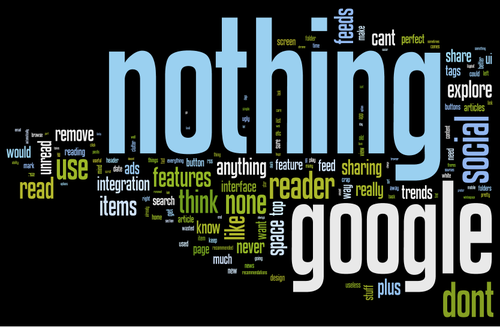Was Google Reader Loved?
As you may (or may not) know, popular aggregator site Digg is working on an RSS reader tool to replace the soon-to-be-dead Google Reader. I’m following Digg’s developments with some interest, looking forward to seeing what they come up with. I don’t think that we have much out there for power users beyond that of Tiny Tiny RSS. Today, Digg released results from a survey they sent out to the over 17,0000 users that showed interest in what they were working on. Incredibly, 8,000 people responded to this survey (including myself) and created some very interesting data about how users think of Google Reader.
The question is, was Google Reader loved by its users? Well, one measure of how much a product is loved could be how much users actually use it. If the product is useful, compelling and dependable, users will use it often and trust more data to it. Based on the survey from Digg, users said this:
80%(!) of respondents check Google Reader many times a day. And 40% of users follow more than 100 feeds.
80% of users use it many times a day. While I am one of those users, I didn’t think Reader was used that often. Google is likely throwing away a user base that has unprecedented loyalty to the product. While the sheer volume of information people used Reader for (100+ feeds) also shows how valued the service is. If you consider that each feed is a single unique web site, after 30 or so feeds, Reader gets unruly. I would consider a user with 100+ feeds a power user.
But, possibly the most compelling argument for the quality of Google’s product in the eyes of its users is what they would change if a replacement was offered. Digg actually went the way of a tag cloud to describe the weight of answers provided. Notice the size and placement of the word “nothing”. Over on the right, “social” also appears prominently.

That says a lot about how many of Google Reader’s core users feel. This all makes me think that Google should give us a more compelling reason why they’re cutting Reader loose, or at least offer us the ability to run the code on our servers. Get with it Google!


